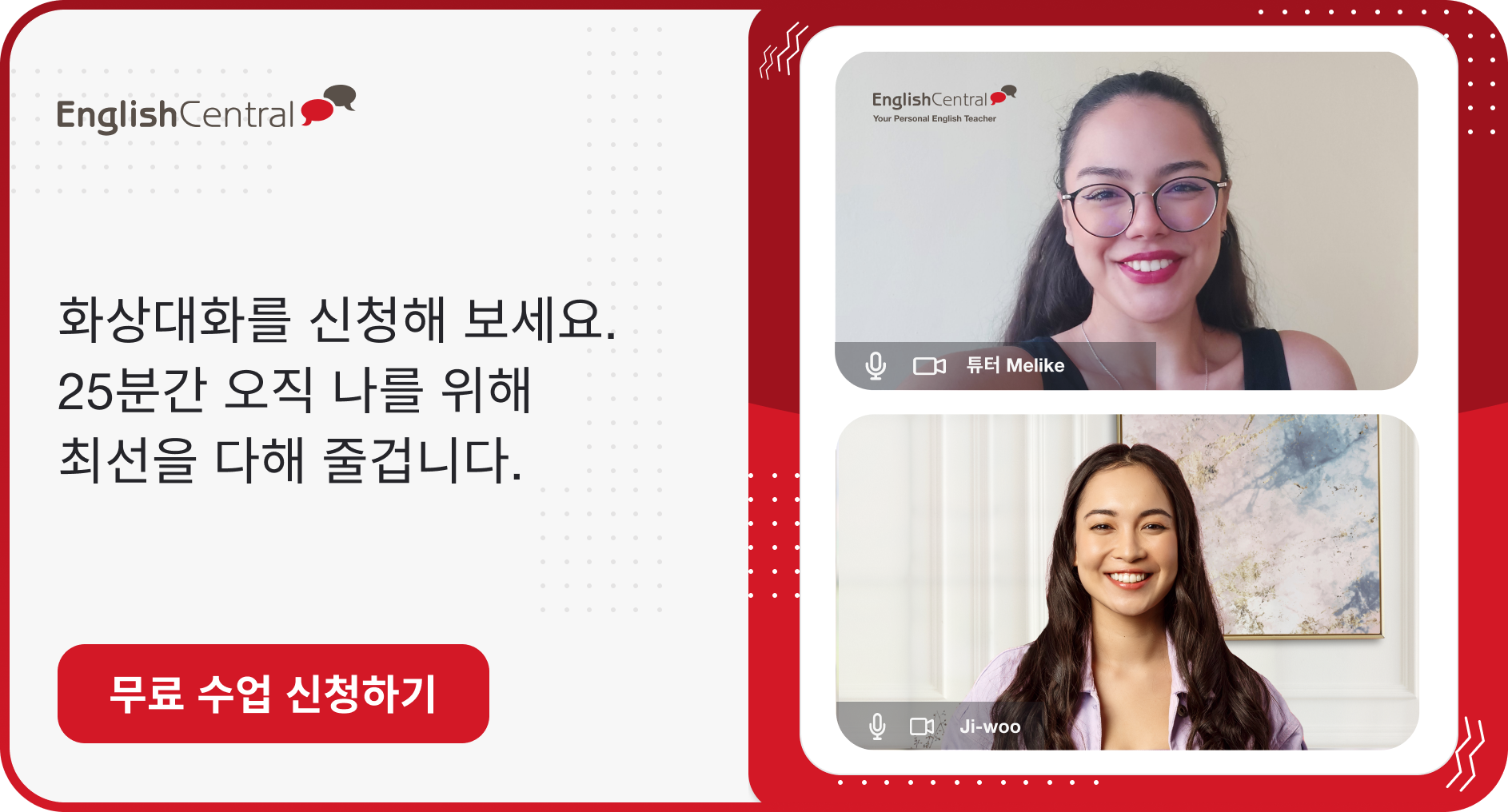Modal Verbs란?
모달 동사는 행동이나 사건에 대한 확신, 의지, 가능성 등과 같은 감정이나 태도를 나타내는데 사용됩니다. 이러한 동사들은 문장에 새로운 의미와 미묘한 뉘앙스를 부여하여 의사 표현의 다양성을 확장합니다.
영어에서 흔히 사용되는 모달 동사는 특정한 상황이나 용도에 따라 다양한 의미를 전달하며, 모달리티는 맥락에 따라 확신, 추측, 의지, 필요성 등을 나타냅니다. 영어 학습자들에게 모달 동사와 모달리티를 이해하는 것은 효과적인 의사 소통을 위한 중요한 기초입니다.
Core modal verb
모달 동사에는 can, could, may, might, will, shall, would should, must 등이 포함되며, 각각의 동사가 다양한 상황에서 특정한 의미를 전달합니다.
Can | 할 수 있다
능력이나 가능성을 나타내며, 일반적으로 새로운 기술이나 능력을 표현할 때 사용됩니다.
Ability:
I can swim very well.
Can you play the guitar?
Permission:
You can use my computer if you need to.
Can I go to the party tonight?
Possibility:
It can get quite cold in the winter here.
Can you believe how fast time flies?
Request:
Can you help me with my homework?
Can you pass me the salt, please?
Offer:
I can give you a ride to the airport.
Can I get you something to drink?
Prohibition (Negative Form):
You can’t smoke in this area.
Students can’t use their phones during the exam.
Suggestion:
You can try the new restaurant downtown; it’s excellent.
Can I suggest a solution to the problem?
Expressing Possibility in the Past:
She can’t have forgotten about the meeting; it was important.
I can’t believe he could climb that mountain at his age.
Could | 할 수 있었다
과거나 현재의 능력이나 가능성을 나타냅니다. 또한 예의를 표현하는 데에도 사용될 수 있습니다.
Past Ability:
When I was younger, I could run very fast.
She could speak three languages fluently.
Polite Request:
Could you please pass me the salt?
Could I borrow your pen for a moment?
Possibility:
It could rain later, so take an umbrella.
He could be at the library; let me check.
Conditional Statements:
If you studied harder, you could improve your grades.
She could come to the party if she finishes her work early.
Polite Offers:
Could I help you with your bags?
I could give you a ride to the airport if you need one.
Expressing a Condition:
We could go to the beach if the weather is nice.
I could come to the meeting if it doesn’t last too long.
Suggesting a Possibility:
You could try the new restaurant downtown; I heard it’s good.
She could consider taking a gap year before starting college.
Polite Declination:
I appreciate the invitation, but I’m afraid I could not make it to the event.
I could have dinner with you, but I already have plans.
May | 할 수 있다
허가나 가능성을 나타내며, 더 공손한 표현을 선호할 때 사용됩니다.
Permission:
You may use my phone if yours isn’t working.
May I leave the room for a moment?
Possibility:
It may rain later, so bring an umbrella.
She may come to the party if her schedule allows.
Polite Request:
May I ask you a question?
May I have a glass of water, please?
Expressing Probability:
He may be at home; let’s give him a call.
The package may arrive by tomorrow.
Offering or Expressing a Wish:
May your birthday be filled with joy and happiness.
May you have a safe journey.
Giving or Refusing Permission (Formal):
You may proceed with the project as planned.
You may not enter this area without proper authorization.
Expressing a Wish or Hope:
May the new year bring you prosperity and success.
May your dreams come true in the coming year.
Expressing a Condition:
If you finish your homework early, you may join us for a movie.
You may attend the conference if you register in advance.
Might | 할 수 있다
더 불확실한 가능성을 나타내며, 조금 더 예측하기 어려운 상황에서 사용됩니다.
Possibility:
It might rain later, so bring an umbrella just in case.
She might join us for dinner if her work allows.
Suggestion or Tentative Request:
You might want to consider applying for that job.
Might I suggest a different approach to the problem?
Polite Permission:
You might use my computer if yours is not working.
Might I have your attention for a moment?
Expressing Uncertainty:
I might attend the event, but it depends on my schedule.
The concert might be rescheduled due to unforeseen circumstances.
Hedging Statements:
I might be wrong, but I think the meeting is at 3 PM.
This might not be the best solution, but it’s worth considering.
Expressing a Small Probability:
He might be a little late, but he should be here soon.
The traffic is heavy, so we might not make it on time.
Expressing a Past Possibility:
She might have forgotten about the appointment; let me check.
It might have been a misunderstanding; I’ll clarify with them.
Making Polite Suggestions:
You might enjoy the new exhibit at the museum.
Instead of arguing, we might find a compromise.
Will | 할 것이다
미래의 확실한 행동이나 사건을 나타냅니다.
Future Intent or Prediction:
I will call you as soon as I reach home.
The sun will set in the west.
Spontaneous Decision:
The weather is so nice; I think I will go for a walk.
I don’t feel like cooking tonight; we will order takeout.
Promises:
I will help you with your homework.
She will always be there for her friends.
Offering Help or Making Requests:
Will you pass me the salt, please?
I will carry that heavy box for you.
Future Certainty:
The bus will arrive at the station on time.
She will graduate next year.
Expressing Habits or General Truths:
He will always start his day with a cup of coffee.
Water will freeze at zero degrees Celsius.
Predictions Based on Evidence:
Look at those dark clouds; it will rain soon.
The way he’s practicing, he will surely win the competition.
Expressing Requests or Invitations (Formal):
Will you please attend the meeting tomorrow?
Will you join us for dinner this evening?
Shall | 할 것이다
주로 제안, 제의, 약속을 나타내는 데 사용되며, 일반적으로 형식적인 상황에서 더 많이 쓰입니다.
Offering or Suggesting:
Shall I help you with your luggage?
Shall we go for a walk in the park?
Making Suggestions or Proposals (Formal):
Shall we discuss the budget during the meeting?
Shall I book a table for two at the restaurant?
Expressing Future Intentions or Plans (Formal):
I shall submit the report by the end of the week.
We shall meet at the conference next month.
Seeking Advice or Opinions (Formal):
What course of action shall we take in this situation?
Shall I inquire about the availability of tickets?
Expressing Determination or Promise (Formal):
I shall do my best to complete the project on time.
We shall uphold the values of integrity in our business.
Expressing a Command or Rule (Old-fashioned or Formal):
Thou shalt not steal. (biblical/archaic use)
Citizens shall follow the traffic rules.
Expressing Questions in the First Person (Formal):
Shall I fetch you from the airport?
Shall we continue with the discussion?
Expressing Inquiries or Invitations (Formal):
Shall we expect you at the party this weekend?
Shall I send you the agenda for the meeting?
Would | 할 것이다
과거에 특정 상황에서의 가능성을 나타냅니다. 또는 공손한 제안이나 요청을 표현할 때 사용됩니다.
Polite Requests:
Would you please pass me the salt?
Would you mind closing the door?
Expressing Preferences:
I would rather go to the movies than stay at home.
She would prefer tea instead of coffee.
Conditional Statements (Unreal or Hypothetical Situations):
If I won the lottery, I would travel around the world.
She would buy a new car if she had enough money.
Offering Help or Making Offers:
Would you like some assistance with your luggage?
I would be happy to help you with your presentation.
Polite Invitations:
Would you like to join us for dinner tonight?
I would love for you to attend the party.
Expressing Habits in the Past:
When I was a child, I would play in the park every day.
Back then, he would visit us regularly.
Polite Declination or Refusal:
I appreciate the invitation, but I would have to decline.
I would rather not discuss that topic right now.
Talking about Future in the Past:
She promised she would call me as soon as she arrived.
He said he would finish the project by the end of the week.
Should | 해야 한다
조언, 권고, 의무를 나타내며, 어떤 일을 하는 것이 올바르다고 생각될 때 사용됩니다.
Advice:
You should get plenty of rest if you’re feeling unwell.
Students should study regularly to perform well in exams.
Recommendation:
I think you should try the new restaurant in town; it’s fantastic.
If you want to improve your skills, you should take a course.
Expressing Obligation or Duty:
Employees should adhere to the company’s dress code.
Citizens should follow traffic rules for their safety.
Suggestion:
Maybe you should talk to your supervisor about the issue.
You should consider joining the gym for better fitness.
Expressing Probability or Likelihood:
It should rain later, so bring an umbrella.
He should be at the meeting by now.
Expressing a Request:
Should you have any further questions, please feel free to ask.
Should you need assistance, contact our customer service.
Expressing Future in the Past:
He said he should finish the project by the end of the day.
We were confident that the team should win the match.
Expressing Regret or Criticism:
You should have informed us about the change in plans.
He should apologize for his rude behavior.
Must | 반드시 해야 한다
강제성이 있는 의무나 필요성을 나타냅니다.
Necessity or Obligation:
I must complete this assignment before the deadline.
Employees must attend the mandatory training session.
Strong Recommendation:
You must see that movie; it’s excellent.
Students must focus on their studies during the exam period.
Prohibition:
You must not enter this area without proper authorization.
Drivers must not exceed the speed limit.
Expressing Certainty:
He must be at the office by now; it’s already 9 AM.
The sun must have set because it’s getting dark.
Expressing Inevitability:
We must face the challenges that come our way.
Change is a part of life; we must adapt.
Expressing Deduction:
She’s carrying an umbrella; it must be raining outside.
He must have forgotten about the meeting; he’s not here.
Making Strong Suggestions:
You must try the chocolate cake at that bakery; it’s amazing.
Visitors must explore the historical sites in the city.
Expressing a Rule or Law:
In this country, all citizens must pay taxes.
Students must abide by the school’s code of conduct.
이러한 핵심 모달 동사들은 영어 커뮤니케이션에서 다양한 의미를 전달하는 데에 필수적이며, 정확한 사용은 효과적인 의사 전달에 기여합니다.
FAQ
모달 동사와 일반 동사의 차이는 무엇인가요?
모달 동사와 일반 동사의 차이점을 살펴보겠습니다. 모달 동사는 다양한 의미를 표현하는 데에 사용되며, 그 사용법은 일반 동사와는 몇 가지 차이가 있습니다.
모달 동사란 무엇인가요?
모달 동사는 어떤 동작이나 상태를 나타내면서 동시에 화자의 태도나 의지를 전달하는데 사용됩니다. 가장 흔히 쓰이는 모달 동사에는 ‘can’, ‘could’, ‘may’, ‘might’, ‘will’, ‘shall’, ‘would’, ‘should’, ‘must’가 있습니다. 이러한 모달 동사는 어떤 행동의 가능성, 필요성, 허용 여부 등을 나타냅니다.
모달 동사와 일반 동사의 주요 차이점
형태의 변화:
모달 동사는 주어에 따라 형태가 변하지 않고 항상 기본 동사 형태를 취합니다. 반면에, 일반 동사는 시제, 인칭에 따라 변하는 경향이 있습니다.
부정 형태:
모달 동사의 부정 형태는 단순히 모달 동사 뒤에 ‘not’을 추가하는 것으로 이루어집니다. 그에 반해, 일반 동사의 부정 형태는 도움 동사 ‘do’를 사용하여 만들어집니다.
문법적 제약:
모달 동사는 주로 기본 동사 뒤에 나오는데, 이 때 기본 동사는 원형을 유지합니다. 그러나 일반 동사는 다양한 형태로 사용될 수 있습니다.
예시와 함께 살펴보기
모달 동사 ‘can’의 예시:
“I can swim.” (나는 수영할 수 있어요.)
일반 동사 ‘swim’의 예시:
“She swims in the pool.” (그녀는 수영장에서 수영해요.)
모달 동사와 일반 동사는 영어 문법에서 각각의 역할을 수행하며, 그 사용법에는 몇 가지 차이가 있습니다. 모달 동사는 화자의 태도나 의지를 더 강조하면서 다양한 뉘앙스를 전달하는 데에 사용되므로, 올바른 상황에서 적절한 동사를 선택하는 것이 중요합니다. 이를 통해 더 명확하고 효과적인 표현을 할 수 있습니다.
더 많은 학습을 하려면, EnglishCentral에 회원가입 후 약 20,000여개의 다양한 주제에 대한 비디오들을 시청하고, 단어를 학습하고, 말하기 연습을 할 수 있습니다. 그리고 EnglishCentral에서 1:1 말하기 수업을 통해 응용해 보시기 바랍니다!











